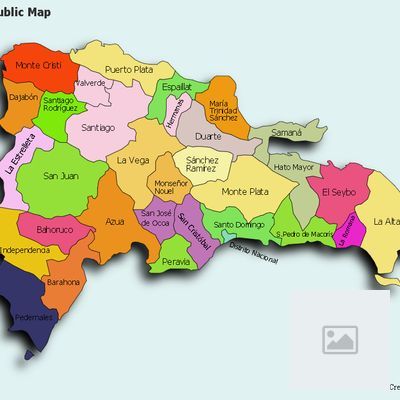Horticulture Jobs: Growing Careers in Gardens
Horticulture: The Art of Growing Plants for Beauty and Utility
Horticulture is the practice of cultivating plants for various purposes, including ornamental, medicinal, and edible uses. It encompasses a wide range of activities, from planting and harvesting to breeding and landscaping. The term "horticulture" is derived from the Latin words hortus meaning garden and cultura meaning cultivation. In essence, horticulture involves the art and science of growing plants for beauty and utility.
The primary focus of horticulture is the study and practice of plant cultivation, which includes soil management, crop production, and plant breeding. Horticulturists employ a range of techniques to improve the yield and quality of crops, enhance plant growth and development, and promote the health and vitality of plants. Some of the techniques include irrigation, pest and disease control, fertilization, pruning, and training.
Horticulture has many benefits, both to individuals and society at large. It provides a source of food, creates green spaces that enhance the environment, and contributes to the overall health and well-being of people. Horticulture also offers numerous job opportunities, ranging from gardening and landscaping to research and development.
Horticulture jobs can be found in a variety of settings, such as botanical gardens, nurseries, arboretums, landscape design firms, and government agencies. Some of the most common horticulture jobs include gardeners, landscapers, greenhouse managers, plant breeders, and horticultural scientists. The Horticulture Salary varies greatly depending on the job and the level of experience of the candidate.
Horticulture courses are also available and can help individuals develop the skills and knowledge needed to pursue a career in horticulture. These courses cover a range of topics, including soil science, plant nutrition, crop production, plant breeding, and landscape design. They are offered at both undergraduate and graduate levels, with many colleges and universities offering horticulture degree programs.
A horticulture degree can lead to a rewarding career in a variety of fields related to plant science, including crop production, plant breeding, landscape design, and horticultural science. In addition, a horticulture degree can open doors to other careers, such as food science, environmental science, and natural resource management.
In conclusion, horticulture is a fascinating and fulfilling field that combines art and science to create beautiful and productive gardens, landscapes, and crops. Whether you are interested in pursuing a career in horticulture or simply enjoy gardening as a hobby, there is always something new to learn and discover.
So, if you love plants and the beauty they bring, why not explore the world of horticulture and discover for yourself the many rewards it has to offer.
Garden
The Beauty of Horticulture
One of the things that drew me to horticulture in the first place is how visually stunning it can be. Gardens, parks, and landscapes that are designed with a horticultural eye are incredibly beautiful. Colorful flowers, well-manicured lawns, and thoughtfully-placed foliage can transform any space into a peaceful, serene oasis.
But beyond just being pleasing to the eye, horticulture can actually have a positive impact on our mental health. Studies have shown that being surrounded by greenery can reduce stress, improve mood, and even boost cognitive function. So, not only is horticulture beautiful, it's also good for us!
The Science of Horticulture
Okay, now let's talk about the nerdy side of horticulture (which is my favorite part, tbh). At its core, horticulture is all about understanding how plants grow and thrive. This means understanding things like plant biology, soil science, and environmental factors that can impact plant growth.
One of the coolest things about horticulture is that it's always evolving. Scientists and researchers are constantly discovering new ways to improve plant growth and develop varieties that are more resilient, disease-resistant, and better able to withstand changes in climate. This means that horticulture is a field that is never stagnant, and there's always something new to learn.
The Practical Side of Horticulture
Okay, so horticulture is pretty and nerdy, but what about the practical side? Can it actually make a difference in the real world?
Absolutely!
Horticulture plays a crucial role in so many industries, from food production to landscaping. Without it, we wouldn't have the fresh fruits and vegetables we enjoy, and we wouldn't have the beautiful parks and gardens that enrich our communities.
But beyond just being important for industries and businesses, horticulture can also make a huge impact on a personal level. Growing your own food, for example, can be incredibly fulfilling and can help you save money on groceries. And creating your own little garden oasis can be a wonderful way to beautify your home and connect with nature.
Getting Involved with Horticulture
So, now that I've convinced you all that horticulture is amazing, you're probably wondering how you can get involved. Luckily, there are a ton of ways to take part!
- Start a garden: Whether it's a few potted plants on your balcony or a full-scale vegetable garden in your backyard, growing your own plants is a great way to get your hands dirty and experience the joys (and challenges) of horticulture.
- Volunteer at a local garden: Many communities have public gardens that rely on volunteers to keep them running. This is a great way to get involved with horticulture while giving back to your community.
- Take a class: If you're really interested in learning more about horticulture, there are a ton of classes and workshops available. Check with your local community college or horticultural society to see what's available in your area.
- Join a club: There are horticultural clubs and societies all over the world that bring together people who are passionate about plants. This is a great way to meet like-minded folks and learn from others who share your interests.
Final Thoughts
So, there you have it - my love letter to horticulture. Whether you're a seasoned gardener or someone who has never even touched a pot of dirt, there's something about horticulture that can appeal to everyone.
At its core, horticulture is all about growth - growth of plants, of knowledge, of communities. And I think that's something we can all get behind.
Horticulture
Horticultural
So let me start with explaining what exactly Horticulture is. It is simply the practice of cultivating and gardening plants for food, medicine, decoration, and aesthetic beauty.
Now, if you’re someone who loves plants and gardening, then you’ll certainly enjoy reading about Horticulture. This field can be pursued both professionally and as a hobby.
There are several benefits of planting and gardening that are good for your physical and mental well-being. Gardening can be a great exercise that not only helps you stay physically fit but also helps reduce stress levels, anxiety, and depression.
If you’re thinking about getting started with Horticulture, then here are some essential tips to help you get started:
- Take the time to learn about gardening techniques and proper plant care.
- Start with a small area or pot and then gradually expand your garden area as you gain more experience.
- Select the right plants for your region and climate. This can make a big difference in the success of your garden.
- Be patient and persistent. Careful tending and regular maintenance are crucial for the health of your garden.
- Enjoy the journey! Horticulture can be a very rewarding and satisfying experience.
At the same time, Horticulture is also a great way to help the environment. Planting more trees, flowers, and other plants helps reduce pollution, increases oxygen levels, and creates a healthier eco-system. Horticulture also benefits local wildlife by providing habitats for birds and insects.
One of the best things about Horticulture is that it’s very versatile. There are many different types of gardens you can create – from ornamental gardens to vegetable or herb gardens to specialist gardens like butterfly or water gardens.
Another great thing about Horticulture is that there are endless possibilities for creativity. You can experiment with different colors, arrangements, and themes. You can even create customized garden sculptures, benches, and other decorations that reflect your own unique style.
So if you’re looking for a fun and rewarding way to spend your time, then Horticulture is definitely something to consider. Whether you’re looking to start your own garden or work in the field professionally, Horticulture offers rich opportunities to connect with nature, improve your health, and make a positive impact on the environment.
Horticulture Definition
Nowadays, horticulture has become increasingly popular as more individuals become interested in sustainable living, the benefits of being surrounded by nature, and the emergence of urban gardening.
- The Benefits of Horticulture
There are numerous benefits of practicing horticulture. First and foremost, it’s a great stress reliever! Spending time in nature can greatly reduce stress levels and positively impact mental health. Secondly, horticulture provides a sense of fulfillment and satisfaction that comes with watching plants grow and thrive under your care.
But the benefits don’t stop there. Horticulture is also great for the environment! Plants play a crucial role in cleaning the air we breathe and combatting climate change. Additionally, growing your own food reduces the carbon footprint that comes with the transportation and packaging of store-bought produce.
Lastly, horticulture is also great for your physical health. Gardening can be a great form of exercise and can help improve flexibility, strength and endurance.
- The Different Types of Horticulture
There are several different types of horticulture, each with their own unique focus and purpose.
- Ornamental Horticulture - This focuses on the cultivation and maintenance of plants for aesthetic purposes.
- Fruit and Vegetable Horticulture - This involves the cultivation of plants for food production.
- Medicinal Horticulture - This involves the cultivation of plants for medicinal purposes.
- Landscape Horticulture - This deals with creating and maintaining outdoor spaces such as parks, shopping centers, and golf courses.
- Horticulture Tips and Tricks
If you’re new to horticulture, have no fear! Here are a few tips and tricks to help you get started with your own garden:
- Choose the right plants for your climate and environment. Certain plants thrive in specific climates, so it’s important to do your research before planting.
- Start small. It can be overwhelming to take on a large gardening project all at once. Try starting with a few plants and working your way up from there.
- Be patient. Horticulture takes time and effort. Don’t get discouraged if your plants don’t grow as quickly or as perfectly as you hoped.
- Use the right tools. Proper tools can make all the difference in the success of your garden. Invest in a good pair of gloves, pruning shears, and a watering can.
- Water your plants correctly. Over-watering or under-watering can be detrimental to your plants. Be sure to research the specific watering needs of your plants and be consistent with your watering schedule.
- Keep your garden clean and maintained. Removing dead leaves, pruning and trimming regularly, and removing weeds can help promote healthy growth for your plants.
So, there you have it - a brief overview of horticulture, its benefits, and a few tips and tricks to help you get started. Are you already an avid horticulturist? Share some of your own tips and tricks in the comments below!
Horticulture Jobs
What is Horticulture?
In simple terms, horticulture is the study and practice of cultivating plants for human use and enjoyment. It includes everything from growing fruits and vegetables for food, to landscaping for aesthetic purposes, to breeding and hybridizing new plant varieties.
The Benefits of Horticulture
Aside from the obvious benefits of having fresh produce and beautiful gardens, horticulture has many other perks. These include:
- Improved mental health and decreased stress
- Increased physical activity
- Education and learning opportunities
- Community building and social interaction
- Environmental conservation and sustainability
Horticulture Careers
If you're interested in pursuing a career in horticulture, you have many options to choose from. Some popular career paths include:
- Landscape designer
- Horticultural therapist
- Plant researcher or geneticist
- Greenhouse or nursery manager
- Botanist
Getting Started with Horticulture
Ready to get your hands dirty and start cultivating your own plants? Here are some tips for beginners:
- Start small with easy-to-grow plants like herbs or succulents.
- Research the specific needs of your chosen plants, including light, water, and soil requirements.
- Invest in quality gardening tools like a trowel, pruners, and gloves.
- Consider joining a local gardening club or taking a class to learn more and connect with other plant lovers.
So there you have it, folks - a brief introduction to the wonderful world of horticulture. Happy planting!
Horticulture Salary
Hey there, have you ever heard of horticulture? It's a study and practice involving plants, gardening, and landscaping. Trust me; this field is much more than just planting flowers and vegetables, and it's pretty cool! Here's a rundown of what horticulture is all about and why it matters. First off, let's talk about the types of horticulture. There are several categories: pomology (study of fruits), olericulture (study of vegetables), floriculture (study of flowers), and landscape horticulture (study of designing and constructing outdoor landscapes). These fields are crucial to our daily lives in many ways, and the people who specialize in these areas and provide us with the food and beauty we enjoy. So, why exactly does horticulture matter? Here are some reasons why: 1) It provides us with food: As mentioned earlier, vegetable and fruit cultivation is an essential part of horticulture. The agriculture industry relies on people trained in olericulture and pomology to produce fresh and nutritious food for our consumption. 2) It helps the environment: Horticulture involves gardening, landscaping, and turf management, which can have positive effects on the environment. For instance, a well-manicured lawn can reduce heat absorption and help filter pollutants in the air. 3) It enhances our quality of life: Floriculturists make our surroundings more beautiful and pleasing to the eye with flowers and other greenery. Have you ever noticed how a vase of flowers can brighten up a room or how being in nature can calm your nerves and make you feel better overall? That's the benefit of horticulture. Moreover, horticulture isn't just about making things look good; it's also about studying and producing various plant species, developing new hybrids or cultivars for specific environments, and using these new varieties for landscaping and agriculture purposes. If you're someone who loves plants and wants to pursue horticulture as a career, you can choose from a variety of jobs, such as a gardener, greenhouse manager, landscaper, horticulture therapist, and many more. In conclusion, horticulture plays a vital role in our society, and we should never underestimate its importance. The world of horticulture is vast, fascinating, and impactful, and if you're interested, you should dive in and see what it has to offer.Horticulture Courses
So, what do horticulturists do?- First and foremost, horticulturists study plants. They learn about how different plants grow, what they need to thrive, and how to help them grow better.
- They also work to develop new plant varieties. By cross-breeding different plants, horticulturists can create new hybrids that have unique characteristics. This can help farmers, gardeners, and landscapers create new and more sustainable ways to grow food and create beautiful landscapes.
- Horticulturists also work to find ways to protect plants from diseases and pests. This can involve finding new pesticides, developing new plant varieties that are more resistant to pests and diseases, and teaching others how to care for their plants in a way that reduces the risk of infection.
- Horticulturists also study the environmental impact of plants. They work to find ways to make the growing and cultivation of plants more sustainable and to reduce the environmental impact of agriculture and gardening.
Horticulture Degree
Horticulture Meaning
Frequently Asked Questions
1. What is horticulture?
Horticulture is the science and art of growing and cultivating fruits, vegetables, flowers, and other plants for human use or aesthetic purposes.
2. What are some common horticulture jobs?Common horticulture jobs include landscape architect, botanist, greenhouse manager, crop specialist, and arborist.
3. What is the average horticulture salary?According to the Bureau of Labor Statistics, the average salary for someone in a horticulture-related occupation is around $55,000 per year.
4. What are some horticulture courses I can take?Some common horticulture courses include plant propagation, pest management, plant identification, soils and fertilizers, and landscape design.
5. What can I do with a horticulture degree?A horticulture degree can lead to careers in the fields of agriculture, landscaping, education, research, and more. Graduates may work in positions such as crop consultant, horticulturist, or plant breeder, among other possibilities.




